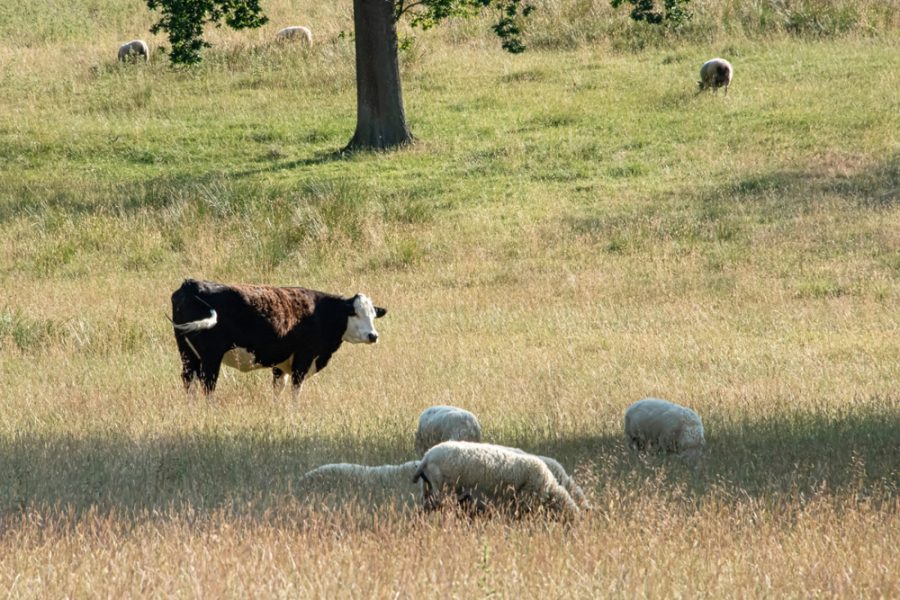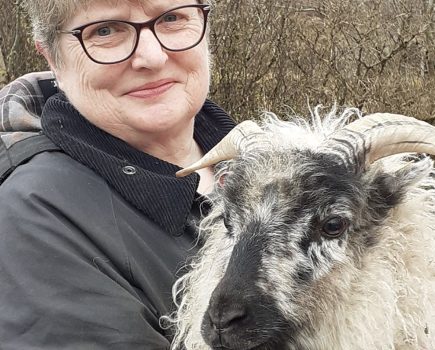The UK Chief Veterinary Officer has set out further measures to mitigate the spread of bluetongue virus serotype 3 (BTV-3).
The UK Chief Veterinary Officer has set out further measures to mitigate the spread of bluetongue virus serotype 3 (BTV-3).
The changes introduced include:
- A restricted zone (RZ) in Kent has been extended to cover the entire county and will now also cover East Sussex.
- An extended restricted zone (RZ) will replace the temporary control zone (TCZ) in force in the East Riding of Yorkshire and parts of Lincolnshire. East Riding and Lincolnshire have also been designated High-Risk counties which means that keepers not covered by the new zone will be eligible for free testing. Keepers will also be eligible to vaccinate their animals using the new general licence.
This comes as the Secretary of State permitted the use of 3 unauthorised bluetongue serotype 3 (BTV-3) vaccines subject to license within the United Kingdom. The vaccines can reduce some of the clinical signs experienced by animals with the disease. They do not prevent infection.
All keepers of susceptible animals (cattle, sheep, goats, deer and other ruminants and camelids including llamas and alpacas) in the restricted zones will need to follow strict rules on animal and germ cell product movements.
These restrictions mean that susceptible animals cannot be moved out of the zone without a specific licence. A general licence to move animals to designated abattoirs is also available. Movements within a zone are also permitted.
UK Chief Veterinary Officer Christine Middlemiss said: “As the number of bluetongue cases continues to rise in England and northern Europe, we are taking prompt action to mitigate the spread of the disease.
“I urge farmers within bluetongue control zones to adhere to restrictions and remain vigilant to prevent the disease spreading to their herds.
“We appreciate the impact restrictions can have on farmers and are committed to working with everyone affected. We will continue to keep control zones under review as our understanding of the disease picture develops.”
Animal and Plant Health Agency Chief Executive Jenny Stewart said: “Since the first BTV-3 case for this season was detected last month, case numbers have continued to rise, and I want to remind keepers of the importance of monitoring their livestock and taking up free testing where necessary.
“Scientists, vets and field teams from the Animal and Plant Health Agency are working hard to help tackle bluetongue virus and ensure farmers are kept up to date and supported.”
Livestock keepers can view more information about bluetongue here. Check the list of all bluetongue cases and control zones and view the bluetongue interactive map.
BTV is a notifiable disease. Suspicion of BTV in animals in England must be reported to the Animal and Plant Health Agency on 03000 200 301.
Webinar – 25th September 2024 at 7.30 pm
The Eastern Alpaca Group have teamed up with Ami Sawran to run a webinar on Bluetongue. All are welcome to join.
If you have any questions about Bluetongue then please email them to secretary@easternalpacagroup.org before the meeting so that the webinar can be as useful as possible. The meeting is schedule to start at 19.30 but please join the waiting room earlier so that everyone can be admitted before the webinar starts.
BLUETONGUE AND HOW TO MITIGATE RISK- AMI SAWRAM WESTPOINT VETS
Time: Sep 25, 2024 19:30 London
Join Zoom Meeting
https://us06web.zoom.us/j/84717207636?pwd=GIgJpddwfY4cP8bj1nCU888hSOne0E.1
Meeting ID: 847 1720 7636
Passcode: 314307.
To receive regular copies of The Country Smallholder magazine featuring more articles like this, subscribe here.
For FREE updates from the world of smallholding, sign up for The Country Smallholder newsletter here.








